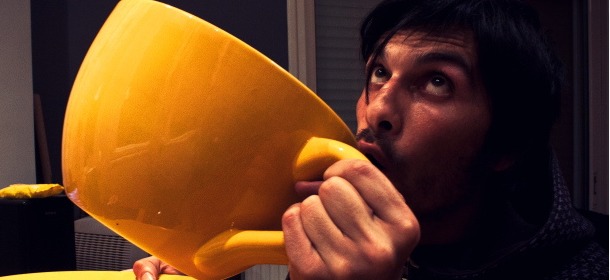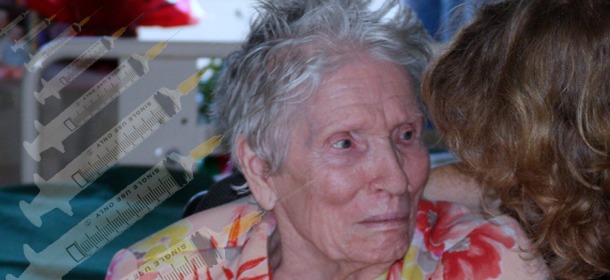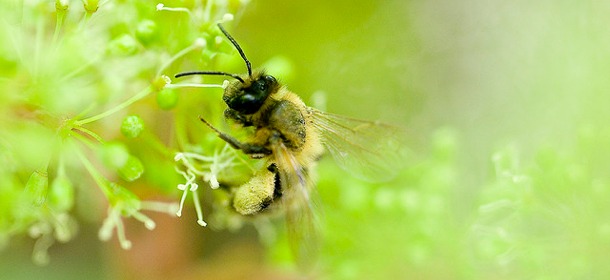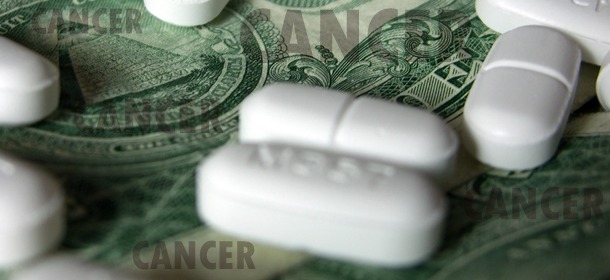Environment
Energy Drinks Kill by Caffeine Toxicity
Caffeine toxicity has risen enormously as a direct result of so-called energy drinks. Between 2005 and 2008, it became 16 times more common. Yet, they don’t always have the caffeine content on their labels!

Photo by Christos Kotsakis. His blog is Coffee, Cigarettes, Camera (in Greek)
By www.TreadmillReviews.net and published exclusively for Gaia Health.
In 2005, around 1,000 cases of caffeine toxicity were reported by emergency rooms nationwide. By 2008, that number had skyrocketed to over 16,000, according to a report recently released by the Substance Abuse and Mental Health Services Administration. Experts are increasingly linking the growing number of caffeine overdoses to the prevalence of so-called energy drinks in the market. In 2010, 460 energy drink exposures were reported to the American Association of Poison Control. Over 2,600 reports of negative exposure to energy drinks have been received by the agency so far this year.
Fatalities Linked to Energy Drinks
 This week, the Food and Drug Administration (FDA) confirmed that over the last four years, the agency has received 13 fatality reports that cited the energy drink 5-Hour Energy as a possible cause of death. Last month, the FDA reported that they had received 5 fatality reports linked to another energy drink, Monster Energy.
This week, the Food and Drug Administration (FDA) confirmed that over the last four years, the agency has received 13 fatality reports that cited the energy drink 5-Hour Energy as a possible cause of death. Last month, the FDA reported that they had received 5 fatality reports linked to another energy drink, Monster Energy.
The New York Times conducted a review of FDA records mentioning 5-Hour Energy and found that since 2009, the agency has received around 90 incident reports that mentioned 5-Hour Energy, including reports of convulsions, heart attacks and one report of a spontaneous abortion.
Energy Drink Dietary Supplements
In contrast to energy drinks like Red Bull that are advertised as beverages, products like 5-Hour Energy and Monster Energy are marketed as dietary supplements. As such, they fall under a different set of FDA rules and ingredient requirements. Since 2008, the FDA has required dietary supplement manufacturers to notify the agency whenever the companies become aware of deaths that might be related to the use of their products.
Neither Living Essentials, the distributors of 5-Hour Energy, nor Monster Energy’s producer would respond directly to queries about the FDA’s two reports but they have said in released statements that they believe that their products are safe and that they are not aware of any deaths proven to be related to the drinks.
Caffeine Content
 Producers of energy drinks marketed as dietary supplements aren’t required to list the product’s caffeine content. In a recent article, Consumer Reports listed results from tests that they conducted on caffeine content. The tests found that of the 16 out of the nation’s 27 top-selling energy drinks that do include caffeine content on their labels, five contained more caffeine than listed.
Producers of energy drinks marketed as dietary supplements aren’t required to list the product’s caffeine content. In a recent article, Consumer Reports listed results from tests that they conducted on caffeine content. The tests found that of the 16 out of the nation’s 27 top-selling energy drinks that do include caffeine content on their labels, five contained more caffeine than listed.
Although Living Essentials will not disclose the amount of caffeine in each bottle of 5-Hour Energy, the Consumer Reports test found that there are around 215 milligrams in each two-ounce “shot.” That’s around eight times as much caffeine as in the same amount of regularly brewed coffee.
An 8-ounce cup of hot cocoa has around nine milligrams of caffeine. A 12-ounce can of Mountain Dew has around 54 milligrams. A single 24-ounce Monster energy drink has around 240 milligrams, about the same amount of caffeine as seven cans of Coca-Cola.
Marketing Campaigns
A statement released by Living Essentials said that 5-Hour Energy is marketed towards “hardworking adults who need an extra boost of energy.” The product’s label states that it is not intended for pregnant women or children under 12 years old. Critics have long argued that energy drinks are designed to appeal to young people, citing the colorful names, logos and advertising campaigns used to promote the products.
Studies have linked caffeine to adverse effects on developing cardiovascular and neurologic systems in children. The American Academy of Pediatrics recommends that children and adolescents avoid all beverages and dietary supplements marketed as energy drinks and limits the recommended intake of caffeine for adolescents to just 100 milligrams a day.
 Recently, members of Congress have called on the FDA to investigate the effects that energy drinks have on children and adolescents. Several energy drink companies have also been issued with subpoenas by New York’s Attorney General to gain information about the accuracy of their marketing claims.
Recently, members of Congress have called on the FDA to investigate the effects that energy drinks have on children and adolescents. Several energy drink companies have also been issued with subpoenas by New York’s Attorney General to gain information about the accuracy of their marketing claims.
A Natural High
While some studies warn of the dangers of energy drinks, more conclude that regular exercise is far more effective at raising energy levels. In a study conducted at the University of Georgia and published in the Psychological Bulletin, researchers looked at a total of 70 studies that analyzed the correlation between exercise and energy. More than 90 percent of the studies found that exercise provided a better energy boost even when compared to stimulant medications.
Those seeking less fatigue and more energy in their lives may enjoy better results by investing in exercise equipment. Stationary exercise equipment like a treadmill or stationary cycle provide an easy and convenient way to discover the role that cardiovascular exercise can play in reducing fatigue and increasing energy levels.
Gaia Health wants to clarify that coffee can have health benefits. The issue in this article is the incredibly large amount of a single element from coffee, caffeine, packed into these misnamed energy drinks. However, we fully support the conclusion that exercise is a far better approach to resolving lack of energy than energy drinks.
















Pingback: Kids And Energy Drinks: What To KnowzuuzSavvy